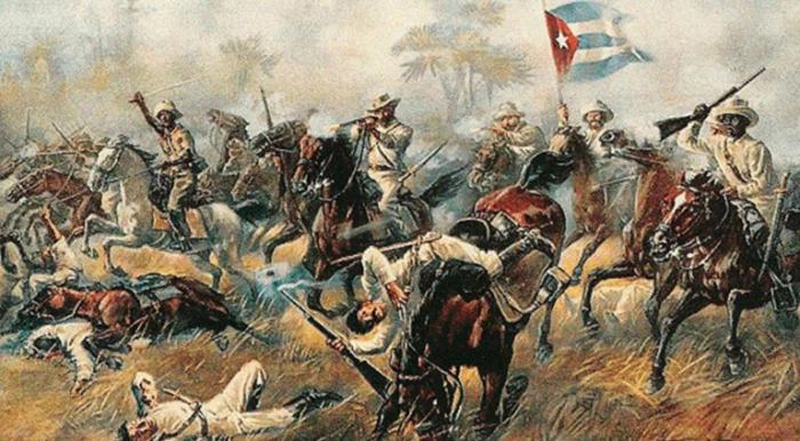The head of the History Department at the University of Havana, Fabio Fernández, hosted the monthly program “Memories of the War“. At the Dulce María Loynaz Cultural Center this Thursday with the lecture “October 1868: A Retrospective Look.”
Just hours before the start of the Cuban Culture Day. The event was led by the vice president of the Institute of Cuban History, Elvis Rodríguez. To reflect on October 10th, we must situate ourselves within the universe of political ideas. From the first decades of the 19th century in Cuba, Fernández stated.
The professor also presented the historical and geopolitical panorama that existed at the international and national levels. Prior to the outbreak of the Ten Years’ War (1868-1878), which directly and indirectly influenced its beginning.
Moreover he explained the main political currents of the period: annexationism, independence, reformism. The complex relationship between them and their representatives. As well as the international discontent that existed between Spain and its colonies.
He also addressed issues related to the first two years of this historical period. Such as the social, economic, and interest differences between the Havana and Central Eastern elites. The abolition of slavery; the incorporation of the central region of Las Villas. The fall of Bayamo; and what it represented for Carlos Manuel de Céspedes as a leader.
Regarding slavery, one of the causes studied for the start of the war, Fernández raised reflections and problems of the time: once we abolish slavery, what do we do with the former slave population?
Under what conditions are those who were slaves incorporated into free life?
He also discussed aspects of the Guáimaro Assembly (April 10th, 1869), the division of civil and military Powers. The models of political organization defended by the different Cuban territories that joined the independence struggles. And even the presence of foreigners and the international support received.
At the end of the meeting, the vice president of the Cuban History Institute emphasized the importance of teaching history through analysis, reflection, and criticism. Rather than through the rote memorization of facts, and urged teachers and specialists to encourage learning.
With information from Prensa Latina
- Mosquitoes and Arboviruses: Everyone’s Responsibility - 15 de October de 2025
- Medano Aggregate Management for Construction in Holguin - 14 de October de 2025
- Water Supply Source Will Benefit Lenin Hospital Service - 14 de October de 2025

